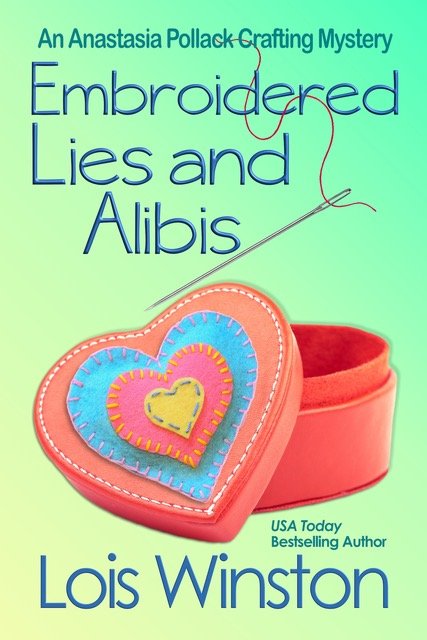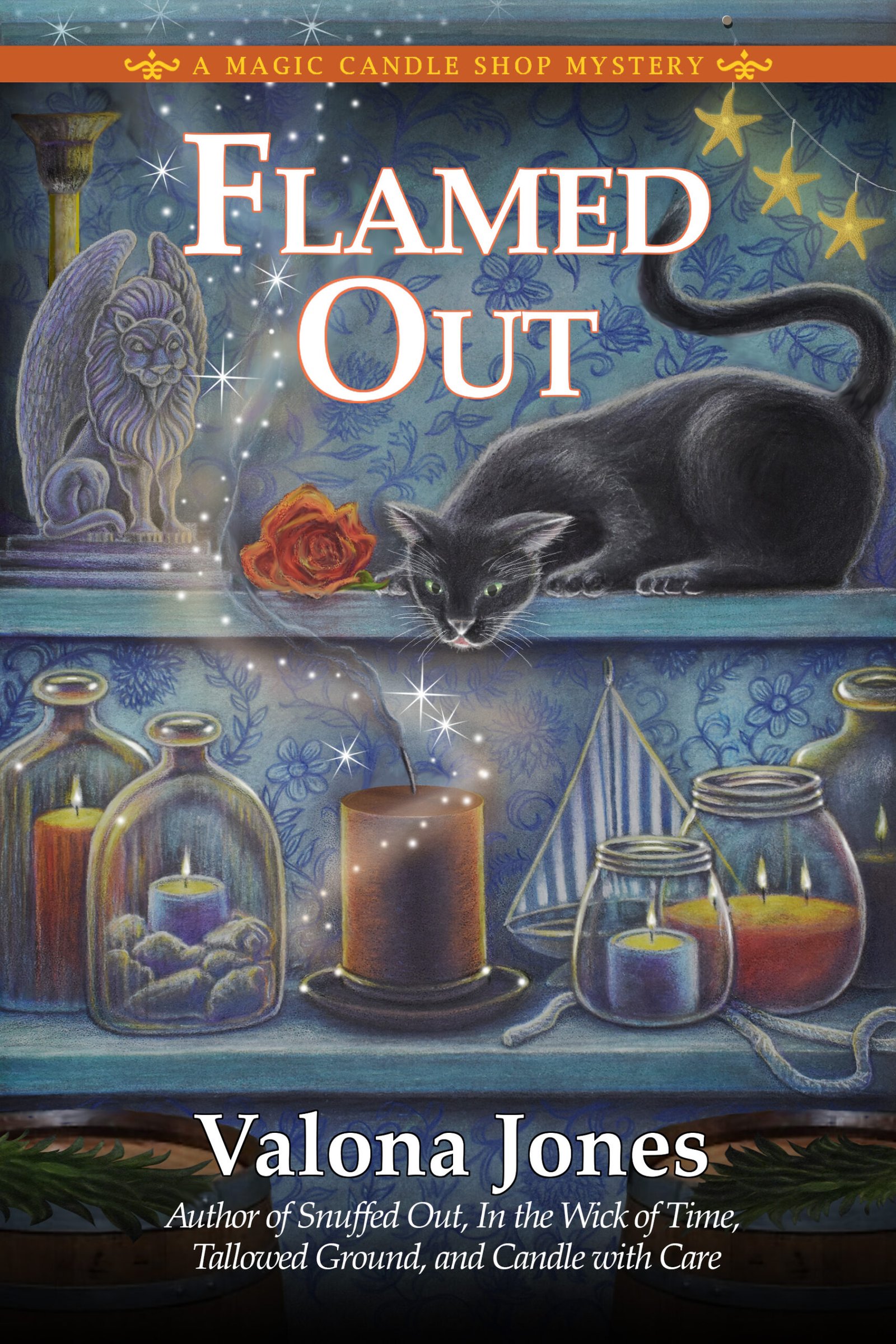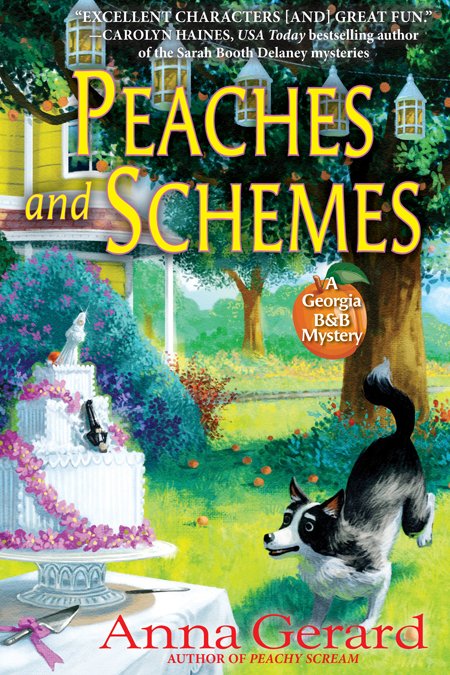Let’s Talk with Karla Brandenburg
Writing a Series
Many readers these days look for authors who can give them continuity in what they’re reading, a series. There are two approaches, continuing saga and recurring characters. In the continuing saga, like serial television, you generally want to start at the beginning and read in order. For recurring characters, that’s generally not as critical.
An example of continuing saga would be Diana Gabaldon and the Outlander series. This series hooked me from the start, I began with the second book and eagerly went back to read the first to see what I’d missed. I will say that she lost me after a few books, but those first couple were very intense and compelling. If you didn’t read them in order, however, you might miss important details that shaped the characters.
An example of recurring characters would be Jill Shalvis and her Lucky Harbor series. These are books that all take place in the same small town, and she wrote them in triplets. Three books of related characters at a time, although all the characters make appearances throughout the series. Three “friends” whose lives interrelate, and then she moves to the next group of three friends in the next triplet. They don’t have to be read in order, and yet it does add to the experience if you do.
One of the pitfalls of series writing is info dumping. It’s a tricky juggling act to entice readers to go back to the earlier books in the series by dropping information into the current story without stopping the action in the current story. In my “Mist” series (a trilogy of a continuing saga), readers who might pick them up out of order need to know some of the history, who is who and what they do, but each story focuses on a different set of characters. While writing the second book, Gathering Mist, too many times the characters in the first book tried to take over the story (and I had to remind them this wasn’t their book!). I rewrote entire chapters into a single sentence or paragraph to keep from stopping the action in THIS book.
Another dangerous pitfall is not writing an end to each installment. Personally, I have a huge issue with authors who leave me dangling at the end of a book, expecting me to read the next one to “find out what happens next.” I want the full story. Beginning, middle, end, which doesn’t mean you can’t leave a couple of open threads to draw people into the next story. An example I can use to illustrate this would be Anne Rice. I like her stories, her characters, but the woman doesn’t know how to end a book. In her Vampire Lestat series, she has the hero climb into his vampire coffin at the end of the second book—but he’s not alone. Wait. What?? Who’s in his coffin?? I read that book while she was still writing them, which meant the third book wasn’t yet available for sale. I was so angry I almost didn’t read the third book, and there are books that I’ve refused to read as a result of similar type endings.
What about you? What type of series do you prefer? Or do you like fresh characters and stories in every book? If an author leaves you hanging at the end of an installment in the series, does that influence whether you will/won’t read the next in the series?
The third book in my trilogy is due out this fall. Leave me a comment to win an ebook version of Mist on the Meadow, the first in my “Mist” series.
Posted in Let's Talk, with Karla Brandenburg, zed: Former Authors • Tags: BLB Discussion, contest, giveaway, Karla Brandenburg, Let's Talk, writing a series | 10 Comments







If I like the characters, I can’t wait to find out more about them. But no cliffhangers. To me, that’s a cheap trick to try to entice a reader to buy the next book. Make me want to read the next book because the one I just finished was well-written.
Agreed, Terry. And the funny part-I had someone comment on my FB page yesterday that they needed to know what happened after book 2 (so when is book 3 coming?). Mea culpa? I guess I’m guilty of leaving a vampire in the coffin (unintentionally).
How fun, though, to have fans who can’t wait for the next book. I just got caught spreading the backstory too thin in book 4 of my series. My editor was very unhappy. I got things corrected right away, but I didn’t even notice the background info was missing. I was too focused on what happened next! LOL. I’m one of your fans who can’t wait for your next book, Karla!
Thanks, Maggie! I rawlly enjoyed your Bubba books too!
Hi Karla,I agree about the tying up of loose ends for the main story, but there may be an ongoing character development arc that necessitates a “cliffhanger.” I think I’m partial to the “moral dilemma” in which a character has worked for what they wanted, eventually won the battle, and is left with the question of what to do next.
Yes, Terry, I agree, although those books that just stop in the middle of the action are the ones that annoy me. I’ve seen it as a ploy to get you to buy more books to continue the story.
I really enjoy series and it is hard to wait for the next one to come out. I know that it can be difficult for the writer to provide enough back story on the previous books without bogging down the story too much. Trilogies tend to be the most commonly available but David Edding did 6 books in each set and one series was 2 sets of 6. J.D. Robb is up to 30 books in her In Death series and doesn’t do a lot of back story now (probably because it would take about 3 books to flesh out the story and characters). As for endings, if it is a good read, I don’t mind a cliff-hanger or teaser ending. And if it is not that good, it won’t make any difference because I won’t be looking forward to the next installment. I love J.A. Jance but she has 3 or 4 different series running, totally unrelated to each other, and she only writes one book a year so you have to wait 3 years for the next book in that series which I hated because I’d have to keep and read the previous one just before the new one came out. And my DH wonders why I’ve got so many books on the shelf.
I have the same problem! When its a long time between books, I do tend to eant to reread so i can pick up where I left off.
I think “leaving a vampire in the coffin” should be come the new “jumping the shark.” You should trademark that night now! But I agree that the main plot needs tidying up. A hint or two about what’s coming next is always appreciated, but not half the whole enchilada. Or vampire. 🙂
lol – thanks, Tina.